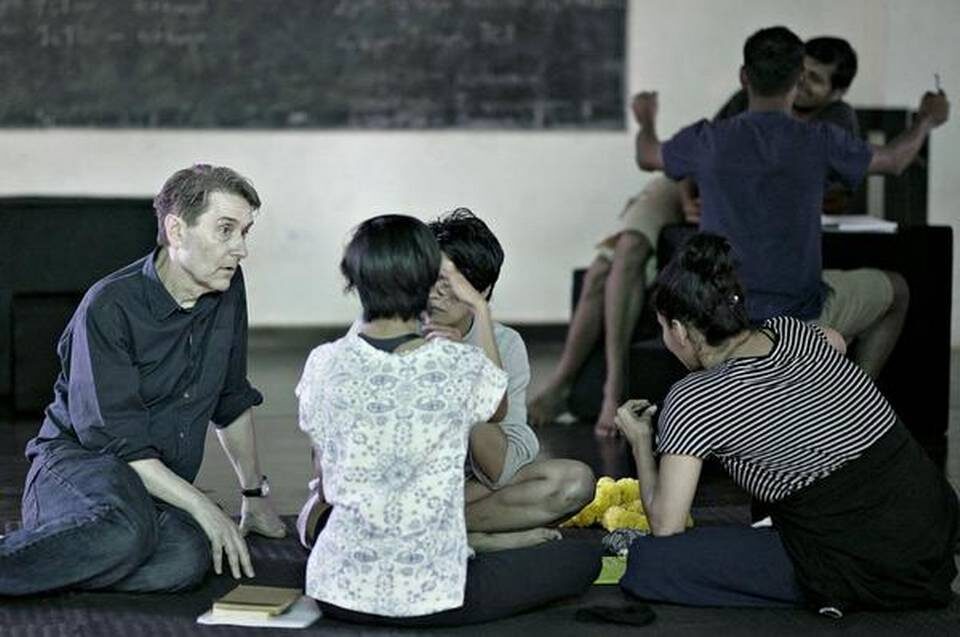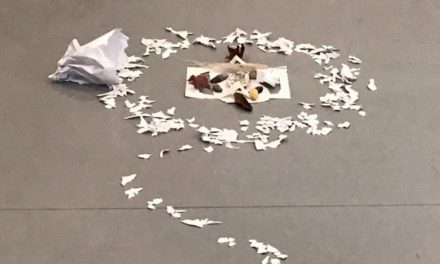In the play, Colors of Trans 2.0, when the transgender performer Living Smile Vidya bares her surgically reconfigured body in a moment of aching vulnerability, it induces gasps from onlookers accustomed only to cis experiences. In Jhalkari, when the Rani of Jhansi (Dipika Pandey) comes across her doppelgänger, she instantly drops her regal guard and recognizes in a stranger an irresistible kinship. It’s a compelling moment in which barriers of caste and class become immaterial. This, despite the actors looking nothing like each other. In Zarr, Ila Arun encapsulates a woman’s life journey in just an instant, as she sheds her new-found sartorial opulence to reveal the humble trappings of her beginnings. And, in A Walk in the Woods, Rajit Kapur’s jaded diplomat abruptly forgoes his consular stiffness by walking out into the rain in an unguarded moment in which the answer to a diplomatic impasse miraculously appears.
Accessible to All
These are not ‘teachable’ moments that announce an idea through mere exposition, but transfiguring epiphanies, fleeting but powerful, that occur on the stage but alter our view of the real world in unexpected ways. These patterns of staging, that hold in their emotive thrall successive sets of audiences, have been extensively studied by theatre practitioner, Will Weigler, for his dissertation with the University of Victoria in British Colombia. Now a published book, The Alchemy of Astonishment is an exhaustive compilation of innovative techniques that, paired with a set of impeccably designed teaching cards, becomes a tool not just to create theatre redolent with resonant moments, but also develop a vocabulary of staging strategies that demystifies the magic of theatre, and makes it accessible to all. It is an intervention that has its genesis in Weigler’s many years in community-based theatre. “I realized that the more I weighed in, the less agency people had over their own stories, in communities I worked with. I was searching for a way to give them the ‘genius’ to create without the need to be professionally trained,” says Weigler. The spark came in the 1980s, during the time he ran a youth theatre company.
Rooted in Social Change
Weigler is currently in the midst of an eight-week sojourn in India, conducting workshops of The Alchemy of Astonishment, while working with a professional troupe from the Mumbai-based Five Senses Theatre to mount Even Mists Have Silver Linings, a play that addresses LGBTHQIA+ identity and stigma in India, and seeks to activate audiences to change their attitudes towards these populations. The creative process of the play involves intense psycho-physical training by Victor Thoudam, an original open script contributed by this writer, and staging scenarios devised by the acting ensemble using community-based research along with Weigler’s invaluable Alchemy cards.
At just seven, Weigler would marshall neighborhood children into creating skits out of Peanuts, the popular comic strip by Charles Schulz. His first professional directing gig at 15 was an opera about a cockroach and an alley cat. He remembers himself as a ‘theory junkie’ always looking to figure out how things worked, and found himself torn between the artistic pursuit of theatre and his social justice persuasions. “Social justice theatre in the 1970s was easy satire that preached to the converted, and it didn’t please me aesthetically,” recalls Weigler. Coming across the French term animateur socioculturel, which connoted a cross between a social worker, community activist and an artist, gave him a name for the space he wanted to occupy. “I was then able to imagine myself doing that, and it opened up possibilities,” he says. His career has combined academia with a theatre practice rooted in social change.
Common Ground
The 2013 project From The Heart: Enter into the Journey of Reconciliation is a play Weigler created with over one hundred Canadian people. It was “a culturally diverse, inter-generational group of almost entirely non-indigenous men and women who found common ground creating and performing an unconventional theatre production about [their] personal understanding of the fraught legacy of colonialism in Canada.” The award-winning immersive theatre project also served as a proof of concept for the principles outlined in The Alchemy of Astonishment. “The play was full of these gasp-inducing moments all the way through and they were crafted by the cast,” he explains. His work on his thesis began in the fall of 2006 and took all of five years. “The book was finally ready to take off when I was diagnosed with throat cancer. I got better, after a full range of treatment, and six months of radiation, but it took me out of commission for a year,” says Weigler. Back on his feet, the project in India will mark the first time a full-length play will be created making extensive use of the Alchemy cards.
This article was originally posted at TheHindu.com on February 14, 2020 and has been reposted with permission. To read the original article, click here.
This post was written by the author in their personal capacity.The opinions expressed in this article are the author’s own and do not reflect the view of The Theatre Times, their staff or collaborators.
This post was written by Vikram Phukan.
The views expressed here belong to the author and do not necessarily reflect our views and opinions.

















